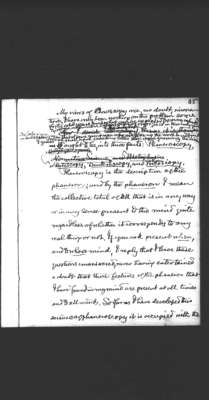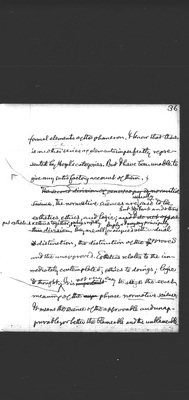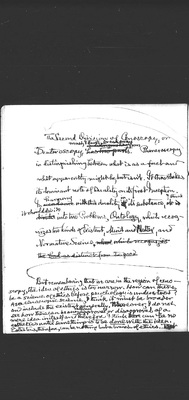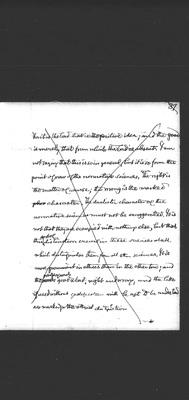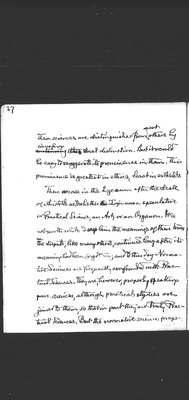Pages
36
35
Now I divide Cenoscopy, less as it is than as My views of Cenoscopy are no doubt immature. I have only been working on the problem some forty odd years and what can be expected from an infant? Give me a hundred years more of vigor, be it in this body you see before you, or in that of some young man who will take up the work and find a successor, and we shall have something better than vague guessing. The division I guess as it ought to be, into three parts: Phaneroscopy, Metaphysics, and Normative Science, and Metaphysics. or Protoscopy, Deuteroscopy, and Tritoscopy.
Phaneroscopy is the description of the phaneron; and by the phaneron I mean the collective total of all that is in any way or in any sense present to the mind quite regardless of whether it corresponds to any real thing or not. If you ask present when, and to whose mind, I reply that I leave these questions unanswered, never having entertained a doubt that those features of the phaneron that I have found in my mind are present at all times and to all minds. So far as I have developed this science of phaneroscopy it is occupied with the
37
36
formal elements of the phaneron. I know that there is another series of elements imperfectly represented by Hegel's categories. But I have been unable to give any satisfactory account of them. [insert from next page]
The second division of censcopy is normative science. The normative sciences are usually said to be esthetics, ethics, and logic; and I do not oppose but Herbart and others put esthetics & ethics together, perhaps rightly. this division. They are all largely & I may say principally occupied with a dual distinction, the distinction of the approved and the unapproved. Esthetics relates to the immediately contemplated; ethics to doings; logic to thought. [insert from next page] It is important not very easy to seize the exact meaning of the sign phrase normative science. It means the science of the approvable and unapprovable, or better the blameable and the unblameable.
38
The Second Division of Cenoscopy, or Deuteroscopy, has two parts is distinguished must, I think, break away from Phaneroscopy in distinguishing between what is as a fact and what apparently might be, but isn't. It thus strikes its dominant note of Duality on its first Inception. In accordance harmony with this duality of in its substance, it is I think divides it should divide into two Problems, Ontology, which recognizes two kinds of Existent, Mind and Matter, and Normative Science. which which recognizes the bad as distinct from the good
But remembering that we are in the region of cenoscopy, the idea of ethics is too narrow. How can there be a science of ethics before psychology is understood? As a cenoscopic science, I think it must be broader and include the existent generally. Moreover, I do not see how there can be any rational approval or disapproval of a mere idea in itself and therefore I think there can be no esthetics until something is to be done with the idea. Esthetics, therefore, can be nothing but a branch of ethics. But
39
37
For it is the bad that is the positive idea, and the good is merely that from which the bad is absent. I am not saying that this is so in general, but it is so from the point of view of the normative sciences. The right is the matter of course; the wrong is the marked phe character. The dualistic character of the normative sciences must not be exaggerated. It is not that they are occupied with nothing else, but that this sort of distinction occurs in these sciences at all which distinguishes them from all other sciences. It is more prominent in ethics than in the other two; and the words pairs of words good & bad; right and wrong, and the like if used without qualification will be apt to be understood as marking the ethical distinction
40
37
These sciences are distinguished from most others by containing involving the dual distinction. But it would be easy to exaggerate its prominence in them. This prominence is greatest in ethics, least in esthetics.
There arose in the Lyceum after the death of Aristotle as to whether the Logic was a speculative or Practical Science, an Art, or an Organon. It is not worth while to explain the meanings of these terms— the dispute, like many others, continued long after its meaning had been forgotten; and to this day Normative Sciences are frequently confounded with Practical Sciences. They are, however, properly speaking pure sciences, although practical studies are joined to them, so that in part they are truly Practical Sciences. But the normative science proper
